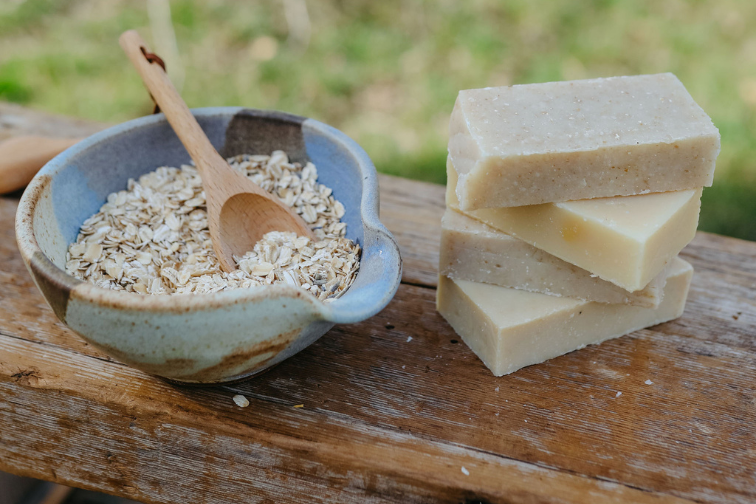
“Smell is a potent wizard that transports you across thousands of miles and all the years you have lived. The odors of fruits waft me to my southern home, to my childhood frolics in the peach orchard. Other odors, instantaneous and fleeting, cause my heart to dilate joyously or contract with remembered grief. Even as I think of smells, my nose is full of scents that start awake sweet memories of summers gone and ripening fields far away.”
― Helen Keller
Olfaction, or our sense of smell, has multiple functions. Smell helps us detect danger or hazards such as spoiled food we shouldn’t eat, or smoke indicating something’s wrong. Pheromones, processed through olfaction, help humans navigate social situations. And integrating with other senses, smell allows us the luxury of taste. However, the most important aspect of scent is one experienced in our heads. As Helen Keller so eloquently expressed it above, our sense of smell is very closely linked with our memory.
Vivid memories can often spontaneously overwhelm us. More often than not a smell acted as the trigger in recalling a long-forgotten event or experience. In addition to being the sense most closely linked to memory, smell is also highly emotive. The perfume industry is built around this connection, with perfumers developing fragrances that seek to convey a vast array of emotions and feelings; from desire to power, vitality to relaxation. After it is taken in through the nostrils, scent passes through the olfactory bulb which processes information about the scent. This bulb sends it to the areas of the brain most closely connected to it, known as the limbic system.
The limbic system comprises a set of structures within the brain that are regarded by scientists as playing a major role in controlling mood, memory, behavior and emotion. It is often regarded as being the old, or primitive, part of the brain, because these same structures were present within the brains of the very first mammals. Knowing this helps us to understand why smell plays such an important role in memory, mood and emotion. In fact, at a very instinctual level, our sense of smell helps us identify each other, and even decide who we may or may not mate with! Humans can detect individuals that are blood-related kin (mothers/fathers and children) but not husbands and wives, mothers can identify, by body odor, their biological children but not their stepchildren. And pre-adolescent children can detect their full siblings but not half-siblings or step siblings through scent.
But what does all this mean if you get a headache every time you walk through the perfume area of your favorite department store? Or if your eyes and throat become irritated when your house mate burns a certain candle? Or if you sneeze with every whiff of a strong room deodorizer? It may mean you are simply sensitive to fragrances.
As many as 30 percent of people surveyed in a study from the University of West Georgia said they find scented products irritating. Fragrance sensitivity can affect several areas of your body. Your respiratory system may be triggered immediately, causing difficulty breathing or a tightening in your chest, especially if you suffer from asthma. Some people experience symptoms similar to those caused by seasonal allergy – itchy, red eyes, or a runny or stuffy nose. And fragrances used in skin-care products can cause contact dermatitis; leaving skin red and itchy.
In fact, “fragrance allergy” is one of the most common diagnoses among dermatology patients. Women are two to three times more likely than men to be allergic to fragrance, and rates of skin allergies in children have risen dramatically over the past few decades. The bottom line about fragrances is this: even though they may smell good and make us think of lovely memories gone by, they are, in essence, chemicals. In fact, one fragrance can be made up of dozens, even hundreds of different chemicals, including known irritants such as geraniol, eugenol, and citronellal; hazardous chemicals such as phthalates; synthetic musk which alters hormone levels; and even cancer-causing chemicals like styrene and methyl eugenol. So, just avoid them, right? That might be more difficult than it seems.
The fragrance industry is highly competitive, so ingredients are kept top secret.
And the only thing required by law on a label are the terms “fragrance” or “perfume”, so actual ingredients are rarely straight forward. Given this, your best bet is going “fragrance free” or “unscented”. You’ll have to become super attentive to where fragrances are hidden, especially those used directly on skin and hair. Ninety-six percent of shampoos, 98 percent of conditioners, 95 percent of shaving products, and 91 percent of antiperspirants contain fragrance. Almost all cleaning supplies are fragranced, including laundry, bathroom, and vehicle products. Even Windex! Don’t forget the obvious and less innocuous luxuries we like to have around us – candles, diffusers, potpourri, and fragrant plug-ins – all can be irritants.
If you don’t want to go completely fragrance free, there is a more natural alternative: essential oils. The difference between essential oils and fragrance oils is the difference between a naturally-derived compound and a synthetic one. While both can give us scent, essential oils are generally distilled from plant material, and considered “natural”; fragrance oils are synthetic. And while you are more likely to have an allergic reaction to the chemicals in fragrance oils, there are some essential oils which can also cause some unpleasant reactions, especially when used undiluted or directly on the skin, although these cases are seen less frequently.
Again, on the safe side, go fragrance free with unscented all-natural soaps!
Splendid Bee offers a wide variety of scented all-natural soaps, but also offers unscented all-natural soaps. Splendid Bee now offers three subscription services that will deliver 6 bars of soap, 9 bars, or 12 bars of soap directly to your door four times a year. You can build your own subscription of soaps that are scented or not and edit your selections at any time.
Information taken from:
- “Fragrance Sensitivity: When Scents Cause Symptoms” written by Diana Rodriguez, Medically Reviewed by Lindsey Marcellin, MD, MPH, Everyday Health.
- “Secret Scents: The Hidden Chemicals in Fragrance”, written by Maria Rodale for The Blog, Huffpost, updated, 2017
- “Psychology and Smell”, Fifth Sense, a charity supporting those who experience smell and taste disorders, fifthsense.org
- “Smells Ring Bells: How Smell Triggers Memory and Emotion”, by Jordan Gaines Lewis, Ph.D., for Psychology Today

